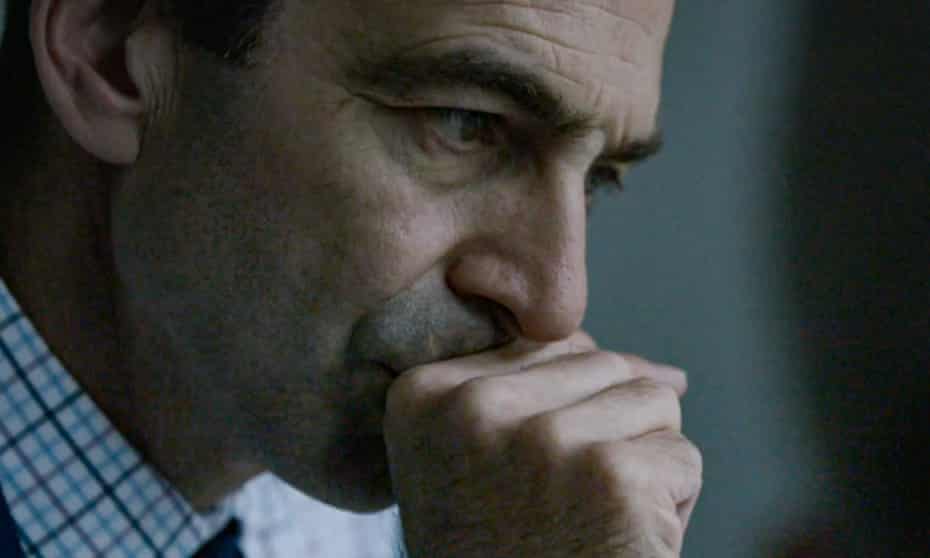Taken: Hunting the Sex Traffickers review – stomach-turning tales of abuse and exploitation
Stories of women bought and sold ‘like meat’ and the criminal gangs enjoying lavish lifestyles at their expense are under the spotlight in this disturbing documentary

“Iknow what’s happening,” says DI Peter Brown of the South West Regional Organised Crime Unit. “But how do I turn it into evidence?” Slowly, carefully and without taking your eyes off the prize seems to be the answer, given over three episodes of the documentary Taken: Hunting the Sex Traffickers (Channel 4). It follows a three-year investigation, prompted by an anonymous letter to a police station in Gloucester, into a man called Mark Viner. He is suspected of being part of one of the estimated 4,500 organised crime gangs (yes, they do use the shorthand OCG, just like in Line of Duty) involved in money laundering, running brothels and trafficking the women working there.
The unit puts Viner under surveillance and painstakingly pieces the jigsaw together: the trips to Brazil and the return journeys with young female companions; the lavish lifestyle that could not possibly be funded by the pension that is his only recorded source of income; the discovery of three flats owned by Viner, out of which the women work; and the arrest of an accomplice, Lezlie Davies. Davies cries at the revelation that his friend Mark is involved in the exploitation of women, but his phone and other belongings provide a riposte to his claims of innocence, plus a wealth of new leads for the police in pursuit of Viner. The movement of cash is tracked. Women who have been bought and sold “like meat”, as one puts it, are interviewed. Other accomplices are found.
The police continually assess the risks of continued surveillance against the evidence gathered so far. Does one yet outweigh the other, given that Viner’s connections in Brazil would allow him to disappear without trace if he got wind of the operation? They hold on, even when Viner moves to Spain. “Trafficking is what he’s doing,” says Brown. “And that’s what I need to prove.”
The fact that we are shown the accuseds’ faces from the start means it is not too much of a spoiler to say that he succeeds in doing so. The interest lies in the ever-compelling story of how the police build a case, especially one crossing countries. They are reliant on thousands of ledger entries and phone records, as well as hours of covert following, which eventually yield a catalogue of wrongdoing that can be built into something robust enough to present in court.
At times, it feels a little too smooth. Tricky moments – what are the rules for officers posing as clients in brothels? – are glossed over. Overall, it seems a very straight march to success for the team. Surely some reversals of fortune must have occurred over the three years. There are moments when this begins to feel like an advert for regional organised crime units.
On the other hand, the sight of a group of people in power working competently towards making the world a slightly better place is a balm of its own. Brown is particularly restorative as he notes how Viner looks so ordinary, yet, “without people like him, a girl doesn’t get brought from Brazil into the UK and raped”. He rebuts the bizarre but common argument that if sex-work slavery takes place under slightly better conditions than it used to, there is no problem. “It doesn’t mean they’re not still being exploited,” he says. “It doesn’t mean bad things aren’t going to happen to them here.”
With all of this, the decision by the programme makers persistently to use shots – frequently full screen – of the women’s profile pictures on the escort website (with their faces hidden) is strange. Did they think we would forget what “sex worker” meant unless we were repeatedly shown twentysomething Brazilians busting out of their lingerie? Did they think viewers would lose interest unless there were some breasts to hold the eye? Or did they not think about it at all?
It becomes more and more jarring as the bleak stories of such women accumulate, about being raped, robbed and “hurting” after being forced to have sex with 10 “customers” in a day. “And it happens almost all the time.” One woman recounts anonymously how a client booked her for 15 minutes, removed the condom before raping her, then bombarded her with texts about him having HIV. Don’t serve up breast shots after that.
No comments:
Post a Comment